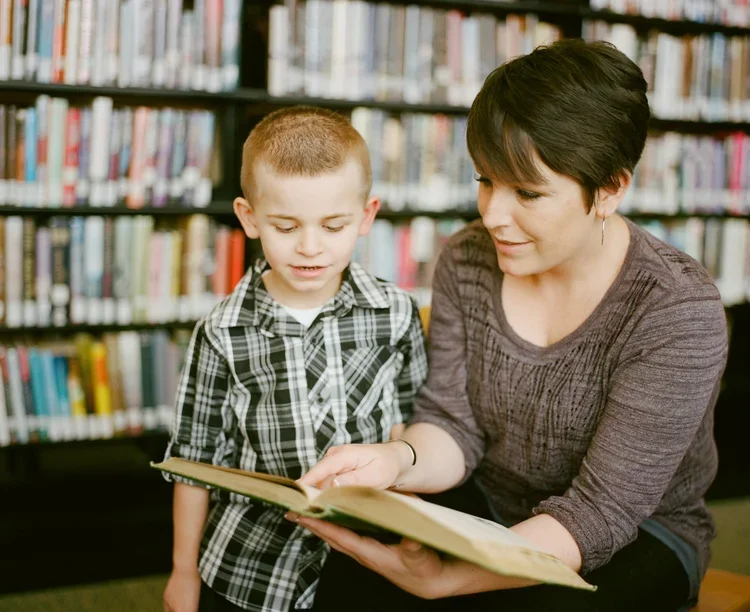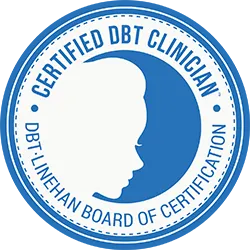DBT for Children at Front Range Treatment Center
Is your child struggling with big emotions, intense reactions, or behavior that feels out of control? Our Child DBT Program, based on Dialectical Behavior Therapy for Children (DBT-C), offers a structured, compassionate path toward emotional stability. At Front Range Treatment Center, we help kids and their families build the skills they need to feel supported, understood, and better prepared for life’s challenges.
What Is DBT for Kids?
Dialectical Behavior Therapy for Children (DBT-C) is an evidence-based approach designed to support children who struggle with emotional and behavioral dysregulation. This often looks like strong, fast-changing emotions and impulsive behavior that’s hard to manage at home, school, or in relationships. DBT-C teaches both children and their caregivers practical tools to understand emotions, reduce distress, and respond more calmly and effectively in everyday situations.
Our program includes structured therapy for children and DBT skill-building sessions for parents to support change at home.
Is DBT Right for My Child?
If your child experiences extreme emotional reactions, outbursts, or mood swings that affect their relationships or daily functioning, DBT for Kids may be a strong fit. DBT is especially helpful when other forms of therapy haven’t worked or your child’s challenges seem to persist despite your best efforts.
Signs your child may benefit:
Regular tantrums or meltdowns
Intense anger or anxiety
Disrespectful or aggressive behavior
Difficulty calming down
Struggles with rules or routines
Low frustration tolerance
We work with families to create a calm, supportive environment where children can learn better ways to cope.

What Symptoms Can DBT for Kids Help With?
DBT for Kids can be helpful when children show:
Frequent emotional outbursts or tantrums
Aggression, yelling, or hitting
Self-harming behaviors like hitting themselves or banging their head
Poor emotional control
Risky or impulsive behaviors
Trouble forming friendships
Social withdrawal or defiance
History of suicidal thoughts or gestures
This structured treatment approach is designed to reduce these behaviors by teaching both kids and parents the skills they need to regulate emotions and respond more effectively to stress.
What Mental Health Conditions Can DBT for Kids Support?
Our Child DBT Program may be helpful for children who have:
Anxiety Disorders – Including generalised anxiety, social anxiety, separation anxiety, or phobias.
Depression and Mood Disorders – Including sadness, irritability, or withdrawal from activities.
Oppositional Defiant Disorder (ODD) – Marked by frequent defiance, arguing, or moodiness.
Conduct Disorder – Including aggression or rule-breaking that’s more serious than typical misbehavior.
Obsessive-Compulsive Disorder (OCD) – Children may get stuck in repetitive rituals or intrusive thoughts.
Post-Traumatic Stress Disorder (PTSD) – Often tied to past trauma, showing up as fear, nightmares, or avoidance.
Eating Disorders – Including early signs of anorexia, bingeing, or food restriction.
Why Do Some Children Struggle More with Emotions?
DBT’s biosocial model explains that emotional sensitivity often results from a mix of biological traits and invalidating environments. Some children naturally feel things more deeply. If their emotions are dismissed, misunderstood, or punished, they may struggle even more to express or regulate them.
This can lead to:
Difficulty calming down
Explosive reactions
Feeling misunderstood
Shame or low self-esteem
DBT for Kids focuses on building emotional skills while helping parents create a more validating, supportive home. It’s not just about treating symptoms – it’s about helping your child feel heard and understood.
What’s Included in Our DBT for Kids Program?
Our program combines skill development with supportive coaching to help families work together toward lasting change.

Parent DBT Training: Building Skills at Home
Parent training in DBT-C helps parents implement a DBT training program at home. This typically involves a combination of education, skills training, and problem-solving.
Parents learn about the principles of DBT and how they can apply these principles in their interactions with their child. They learn strategies for communicating with their child effectively, setting boundaries, and promoting healthy behaviors.
These meetings also provide an opportunity for parents to discuss their concerns, ask questions, and receive guidance on implementing DBT-C strategies at home. The therapist may offer feedback, troubleshoot challenges, and offer support to parents in their role as primary caregivers.

Individual DBT Therapy Sessions for Children
In these individual sessions, children meet with a DBT therapist. These appointments begin after a period of parent coaching. Your child DBT therapist will determine how often child meetings need to occur. The purpose of these sessions is to offer support, skills coaching, and assessment.

Optional Therapy for Parents Who Need Extra Support
An optional add-on service, individual therapy for parents is available when you need extra support, or assistance in pursuing your personal goals.
Sometimes, this component might be required in order for Child DBT to be successful. If a parent is struggling, children can tell. This would be completed with a different therapist than your child DBT trainer.


How DBT for Kids Helps Children and Families
Address Aggressive or Risky Behaviors with DBT
Parents learn how to manage concerning behaviors with clear expectations, consistency, and reinforcement. This reduces harmful or unsafe actions while improving family structure.
Help Your Child Build Emotional Control:
Children learn to notice and name their feelings, use coping strategies, and avoid reactive behaviors. DBT helps parents model and reinforce these changes at home.
Support for Anxiety and Depression in Children
By learning skills to calm their mind and body, children experience fewer symptoms of anxiety and depression. They feel more secure and confident, both at home and in social settings.
Strengthen Your Child’s Communication and Relationships
Interpersonal skills help children form healthier connections with siblings, classmates, and adults. They learn how to assert themselves, resolve conflict, and communicate respectfully.
Reduce Self-Harming and Suicidal Behaviors in Children
DBT teaches children how to manage distress without resorting to harmful behaviors. It also gives parents tools to spot warning signs early and know how to respond.

Why Early Support Matters for Emotionally Sensitive Kids
Emotional struggles in childhood don’t usually go away on their own. In fact, when left unaddressed, early emotional dysregulation can grow into larger problems during adolescence – like substance use, self-harm, or difficulty maintaining friendships. That’s why early intervention with DBT for Kids is so important.
At Front Range Treatment Center, we don’t wait for things to get worse. Our goal is to support families early, teach practical skills, and set your child up for long-term emotional success. With the right tools, even highly sensitive children can build confidence, control, and stronger relationships.
What to Expect When You Reach Out
We know reaching out for help can feel overwhelming – but you won’t do it alone. When you contact Front Range Treatment Center, you’ll start with a free phone consultation. We’ll walk you through the DBT for Kids program, answer your questions, and help determine if it’s the right fit for your family.
If you decide to move forward, we’ll guide you through the next steps:
Scheduling an intake session
Beginning parent coaching
Planning individual therapy for your child.
We’re here to make sure every family feels informed, supported, and empowered from day one. And if your loved one is struggling with strong emotions or BPD? Our Friends and Family DBT program can help.

A DBT-Certified Program You Can Trust
Front Range Treatment Center is a DBT-Linehan Board of Certification, Certified Program™ - a designation that reflects our commitment to evidence-based, gold-standard DBT care. This certification ensures that our DBT for Kids program is delivered with clinical integrity and effectiveness.
Ready to Start DBT for Kids?
You’re not alone. If you’ve tried everything and your child is still struggling, DBT for Kids could offer a clear, structured path forward. With support for both child and parent, we help families strengthen connection, reduce chaos, and build emotional resilience together.
Contact us today to schedule a consultation or learn more about how we can help your child thrive.
FAQs
1. What is DBT for Kids and how does it help?
DBT for Kids, or Dialectical Behavior Therapy for Children, is a specialized therapy for kids who struggle with intense emotions and impulsive behaviours. It teaches both children and parents practical tools to manage big feelings, reduce meltdowns, and improve communication. Kids learn to name their emotions, pause before reacting, and make more thoughtful choices. At the same time, parents receive coaching to reinforce these skills at home. The goal is to build emotional control, create safer behaviours, and improve family relationships over time.
2. At what age can a child start DBT?
DBT for Kids is typically appropriate for children between the ages of 7 and 12, though every child is different. What matters most is whether your child has the capacity to learn and apply skills with adult support. Younger children may need more parent involvement and repetition, while older kids may move into teen DBT programs. At Front Range Treatment Center, we assess each child individually to determine readiness and tailor the program to meet their developmental needs.
3. Does DBT work for children with anxiety?
Yes, DBT for Kids is often very effective for children with anxiety. The program helps children identify their anxious thoughts, learn calming strategies, and face fears gradually in a supportive way. DBT teaches tools for managing panic, separation anxiety, social fears, and general worry. Parents also learn how to avoid reinforcing anxious behaviours and instead support their child’s growth and independence. When practiced consistently, these skills can reduce anxiety symptoms and improve a child’s sense of safety and control.
4. What makes DBT different from other therapies for kids?
Unlike traditional talk therapy, DBT is skills-focused and highly structured. It doesn’t just explore feelings – it teaches step-by-step tools for managing those feelings in everyday life. DBT for Kids also includes parents as key partners in treatment, offering coaching to help them apply strategies at home. This dual approach is a major reason DBT is effective for emotional and behavioural challenges. It’s practical, evidence-based, and designed for real-world use – not just in the therapy room.
5. What can I expect during parent coaching sessions?
In parent coaching, you’ll learn DBT concepts and how to use them to support your child. You’ll practise skills like validation, limit-setting, and emotion coaching. These sessions are tailored to your family’s unique challenges and give you space to ask questions, discuss real-life situations, and build confidence in handling tough moments. We also help you create a calm, structured environment that supports your child’s growth. The goal is to make you feel equipped and supported as a key part of your child’s progress.
6. Will my child have one-on-one therapy sessions?
Yes, after parents complete foundational training, children begin individual sessions with a DBT-trained therapist. These one-on-one appointments give kids a safe place to learn emotional skills, practise coping strategies, and work through challenges they’re facing. Sessions are tailored to the child’s age, personality, and current needs. The therapist also coordinates with parents to make sure progress continues at home. Over time, these sessions help your child gain better emotional control and feel more secure in themselves.
7. How long does the DBT for Kids program last?
The length of the DBT for Kids program varies based on your child’s needs, but many families participate for six months to a year. Some children may need more time to practise and master the skills, while others progress more quickly. The program is flexible and designed to evolve with your child’s development. We regularly reassess goals and adjust the plan to keep your family moving forward. Parent involvement remains key throughout the process for lasting results.
8. What if my child refuses to participate in therapy?
It’s common for children to feel unsure or resistant at first, especially if therapy is new or previous attempts haven’t helped. That’s why we begin with parent coaching – so you can start creating change even if your child isn’t ready. As you learn how to respond differently at home, children often become more open to participating. When kids do start sessions, we use engaging, age-appropriate strategies to build trust and keep them involved. The goal is steady progress, not perfection.
9. Can DBT help with self-harm or suicidal behaviour in kids?
Yes, DBT is one of the most effective therapies for reducing self-harm and suicidal thoughts in children and adolescents. It teaches both children and parents how to manage overwhelming emotions in safer, more productive ways. Kids learn specific strategies for tolerating distress, calming their minds, and asking for help. Parents are trained to spot warning signs and respond supportively. If your child is engaging in self-harm or making suicidal statements, DBT offers a structured, compassionate path toward safety and healing.
10. How do I get started with DBT for Kids at Front Range Treatment Center?
Getting started is simple. Just contact our team to schedule a free phone consultation. We’ll explain how the program works, answer your questions, and help decide if DBT for Kids is the right fit for your family. From there, we’ll guide you through scheduling an intake session and beginning parent coaching. Our team is here to support you at every step – no pressure, no judgment – just a plan for helping your child and your family feel more stable, connected, and supported.
